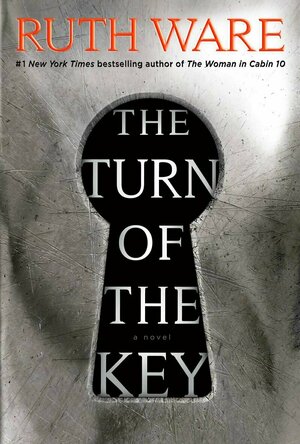Search
Search results
Darren (1599 KP) rated Jellyfish (2018) in Movies
Dec 8, 2019
Verdict: Tragic & Heart Breaking
Story: Jellyfish starts as we meet school student Sarah Taylor (Hill) who is in struggling through her drama classes, taking care of her young siblings, while trying to work to give them any sort of extra money, her mother Karen (Matthews) is unemployed suffering from a mental illness.
When Sarah’s teacher Adam Hale (Nri) sees her talent for comedy, he pushes her into trying stand up comedy for a show, just when Sarah’s life starts to fall apart, with her losing her job and the family losing their benefits because of her mother not attending her meetings. Sarah is left needing to turn to darker sides of her life, to make sure her siblings stay with her and don’t get put into the foster system.
Thoughts on Jellyfish
Characters – Sarah is a 15-year-old girl that must look after her younger siblings, while her mother is struggling with her own mental illnesses, Sarah is trying to get through her GCSEs, working part time and being the only adult in her house, she is facing a future that isn’t going to happen unless things change quickly, everything is slowly piling up on her, with life situations she shouldn’t have put on her. Karen in the mother who has been suffering through depression making it difficult for her to even get out of the house to keep the benefits coming in. Adam Hale is the drama teacher that does see some potential in Sarah, he encourages her to find her talent for comedy, being supportive, where nobody else is. Vince is the boss that is trying to be strict, he gives Sarah chances unaware of her problems at home, even if he ends up being like any boss who hasn’t gotten more out of their own life.
Performances – Liv Hill gives us one of the strongest performances you will ever see, from every expression of pain she is going through, to just holding in the explosion of emotion that wants to come out of her. Sinead Matthews does make her character look like she is struggling with life. The rest of the supporting cast are strong, they all let Liv take the centre stage.
Story – The story here shows a 15-year-old that must take care of her younger siblings, manager school life and work life just to keep a roof over their heads. This is a story that will put a startling light on how some children will be living and just what they will need to do to get through each day, it shows the poverty line in England and how people will often not even give you the time of day to see what is wrong with somebody’s life, with only one person trying to offer support to Sarah. We see just how desperate she has become to make sure the family stays together even going against the law in her attempts. You will find yourself being incredibly moved by the struggles of Sarah and watching her slowly see her life unravel makes you want to help her.
Settings – The film is set in Margate a small coast town that doesn’t have the luxury life many people living there would have, it shows that small towns don’t offer big futures for people.
Scene of the Movie – The routine.
That Moment That Annoyed Me – Is drama the only class Sarah takes?
Final Thoughts – This is one of the most emotionally charged movies you will see, we have a truly brilliant performance that will leave you feeling heart broken by what Sarah goes through, a must watch.
Overall: Brilliant.
Story: Jellyfish starts as we meet school student Sarah Taylor (Hill) who is in struggling through her drama classes, taking care of her young siblings, while trying to work to give them any sort of extra money, her mother Karen (Matthews) is unemployed suffering from a mental illness.
When Sarah’s teacher Adam Hale (Nri) sees her talent for comedy, he pushes her into trying stand up comedy for a show, just when Sarah’s life starts to fall apart, with her losing her job and the family losing their benefits because of her mother not attending her meetings. Sarah is left needing to turn to darker sides of her life, to make sure her siblings stay with her and don’t get put into the foster system.
Thoughts on Jellyfish
Characters – Sarah is a 15-year-old girl that must look after her younger siblings, while her mother is struggling with her own mental illnesses, Sarah is trying to get through her GCSEs, working part time and being the only adult in her house, she is facing a future that isn’t going to happen unless things change quickly, everything is slowly piling up on her, with life situations she shouldn’t have put on her. Karen in the mother who has been suffering through depression making it difficult for her to even get out of the house to keep the benefits coming in. Adam Hale is the drama teacher that does see some potential in Sarah, he encourages her to find her talent for comedy, being supportive, where nobody else is. Vince is the boss that is trying to be strict, he gives Sarah chances unaware of her problems at home, even if he ends up being like any boss who hasn’t gotten more out of their own life.
Performances – Liv Hill gives us one of the strongest performances you will ever see, from every expression of pain she is going through, to just holding in the explosion of emotion that wants to come out of her. Sinead Matthews does make her character look like she is struggling with life. The rest of the supporting cast are strong, they all let Liv take the centre stage.
Story – The story here shows a 15-year-old that must take care of her younger siblings, manager school life and work life just to keep a roof over their heads. This is a story that will put a startling light on how some children will be living and just what they will need to do to get through each day, it shows the poverty line in England and how people will often not even give you the time of day to see what is wrong with somebody’s life, with only one person trying to offer support to Sarah. We see just how desperate she has become to make sure the family stays together even going against the law in her attempts. You will find yourself being incredibly moved by the struggles of Sarah and watching her slowly see her life unravel makes you want to help her.
Settings – The film is set in Margate a small coast town that doesn’t have the luxury life many people living there would have, it shows that small towns don’t offer big futures for people.
Scene of the Movie – The routine.
That Moment That Annoyed Me – Is drama the only class Sarah takes?
Final Thoughts – This is one of the most emotionally charged movies you will see, we have a truly brilliant performance that will leave you feeling heart broken by what Sarah goes through, a must watch.
Overall: Brilliant.

Motion Math: Fractions!
Education and Games
App
Play the award-winning learning game that puts the action in fraction! * Excellence in Design Award...
Lee (2222 KP) rated Colossal (2016) in Movies
Jul 26, 2017
Colossal is written and directed by Nacho Vigalondo, who also wrote and directed 2007’s Timecrimes. One of my favourite movies and probably the best movie about time travel that isn’t Back to the Future! So, I’d been looking forward to catching this, his latest movie, for a while now. Luckily, it didn’t disappoint.
Anne Hathaway is Gloria, a 30-something party girl whose life is in a serious downward spiral. Her boyfriend (an underused Dan Stevens) decides that enough is enough and kicks her out of his New York apartment. So, Gloria moves back to the quiet little town where she grew up and moves into her parents empty house in an attempt to try and rebuild her life. After a bad nights sleep on the bare floor (a nice running joke throughout the movie), she heads out to buy an inflatable mattress and on the way back is passed by Oscar (Jason Sudeikis) in his pickup truck, who pulls up and offers her a ride. It turns out that Oscar and Grace are old school friends and as they get talking about old times it transpires that things aren’t so great for Oscar these days either. He takes her to the bar he inherited from his father, only half renovated due to a lack of money, and later on offers Gloria a waitress job. Most of their time in the bar though seems to be spent after hours, drinking away the stock with a couple of other friends/barflies. Gloria is soon back to blacking out from drink and then waking up at some point the next day with vague memories of the night before.
And then one morning Gloria wakes to images on TV of a giant Godzilla-like creature which suddenly materialised and started rampaging through Seoul in South Korea. Furthermore, after a few more appearances by this creature, Gloria comes to the realisation that this creature somehow appears to be copying her movements! And a bit later on, a giant robot appears too!!
It’s difficult to elaborate on this part of the movie much further without going into serious spoiler territory. The whole idea sounds crazy, but it’s surprising just how quickly the whole concept just settles in and this remains primarily a movie about humans, our relationships and our inner demons. Hathaway and Sudeikis are at their best here, with Sudeikis progressing from his usual likeable slacker role into something much more darker and complex. Things become increasingly tense, culminating in a highly original and hugely satisfying final act which I absolutely loved. It’s truly amazing what’s been achieved here with such a low budget too, with only a few occasions where the effects appear a little shaky. Overall though, this is a smart must-see movie. Brilliant.
Anne Hathaway is Gloria, a 30-something party girl whose life is in a serious downward spiral. Her boyfriend (an underused Dan Stevens) decides that enough is enough and kicks her out of his New York apartment. So, Gloria moves back to the quiet little town where she grew up and moves into her parents empty house in an attempt to try and rebuild her life. After a bad nights sleep on the bare floor (a nice running joke throughout the movie), she heads out to buy an inflatable mattress and on the way back is passed by Oscar (Jason Sudeikis) in his pickup truck, who pulls up and offers her a ride. It turns out that Oscar and Grace are old school friends and as they get talking about old times it transpires that things aren’t so great for Oscar these days either. He takes her to the bar he inherited from his father, only half renovated due to a lack of money, and later on offers Gloria a waitress job. Most of their time in the bar though seems to be spent after hours, drinking away the stock with a couple of other friends/barflies. Gloria is soon back to blacking out from drink and then waking up at some point the next day with vague memories of the night before.
And then one morning Gloria wakes to images on TV of a giant Godzilla-like creature which suddenly materialised and started rampaging through Seoul in South Korea. Furthermore, after a few more appearances by this creature, Gloria comes to the realisation that this creature somehow appears to be copying her movements! And a bit later on, a giant robot appears too!!
It’s difficult to elaborate on this part of the movie much further without going into serious spoiler territory. The whole idea sounds crazy, but it’s surprising just how quickly the whole concept just settles in and this remains primarily a movie about humans, our relationships and our inner demons. Hathaway and Sudeikis are at their best here, with Sudeikis progressing from his usual likeable slacker role into something much more darker and complex. Things become increasingly tense, culminating in a highly original and hugely satisfying final act which I absolutely loved. It’s truly amazing what’s been achieved here with such a low budget too, with only a few occasions where the effects appear a little shaky. Overall though, this is a smart must-see movie. Brilliant.
Heather Cranmer (2721 KP) rated The Last Sanctuary (The Last Sanctuary, #1) in Books
Jun 7, 2018
This review is also on my blog <a href="http://themisadventuresofatwentysomething.blogspot.co.uk/">The (Mis)Adventures of a Twenty-Something Year Old Girl</a>
The Last Sanctuary is such a sweet story! I enjoyed it very much. It also has faeries in it which I'm obsessed with =D
The Last Sanctuary by P.S. Mokha is a middle grade fantasy story. It's about three twelve year old girls, (Lily, Olivia, and Rose) who have been orphaned and their adventures trying to find the Hidden Room. On the way, they learn a lot about themselves and get themselves into many dangerous predicaments as well as finding out that they're part of a prophecy "Three will arrive. One to give...One to die...One to Live."
My favourite character was Lily. I could relate a lot to her. She seemed to be the most empathetic. I like the way she's cautious about everything and worried about getting into trouble. She's also aware of everyone's feelings. Rose was great as well. She is the brains behind the group, always working out problems and finding a way out of them. She's the one with a good head on her shoulders. Olivia is the one who's always more worried about her stomach than anything else. Of this, I can relate with her. She's always wanting to eat something and is always snacking. She, to me, seems to be the more funnier one.
I thought the world building was fantastic! The school is set in London but is hidden from the outside world. It sounds ridiculous, but the author made it believable in this book. The description of London is perfect. You can definitely tell the author lived in London. The world of Amassaya was also built beautifully. It actually sounded like a place I'd love to visit. It sounds so magical as it's supposed to.
I found the pacing to be just right for a middle grade book. It's just the right pace to keep the reader interested.
The dialogue was easy to understand. However, there were a few words, and when I say few, I mean about 5 or less, that would probably be a bit difficult for middle graders to understand. Most could be understood using context clues though.
Now I have to talk about the cover - How cool does that cover look!?! I love the faery that's on fire on the cover!!! I don't want to give too much away, but the cover shows some of the main elements of the book. The title of the book also fits the plot as well.
This book left me with a magical feeling. It had perfect comic timing but knew when to be serious. This book definitely made me feel warm =)
I'd definitely recommend this book to all those that are fans of middle grade or YA fantasy.
The Last Sanctuary is such a sweet story! I enjoyed it very much. It also has faeries in it which I'm obsessed with =D
The Last Sanctuary by P.S. Mokha is a middle grade fantasy story. It's about three twelve year old girls, (Lily, Olivia, and Rose) who have been orphaned and their adventures trying to find the Hidden Room. On the way, they learn a lot about themselves and get themselves into many dangerous predicaments as well as finding out that they're part of a prophecy "Three will arrive. One to give...One to die...One to Live."
My favourite character was Lily. I could relate a lot to her. She seemed to be the most empathetic. I like the way she's cautious about everything and worried about getting into trouble. She's also aware of everyone's feelings. Rose was great as well. She is the brains behind the group, always working out problems and finding a way out of them. She's the one with a good head on her shoulders. Olivia is the one who's always more worried about her stomach than anything else. Of this, I can relate with her. She's always wanting to eat something and is always snacking. She, to me, seems to be the more funnier one.
I thought the world building was fantastic! The school is set in London but is hidden from the outside world. It sounds ridiculous, but the author made it believable in this book. The description of London is perfect. You can definitely tell the author lived in London. The world of Amassaya was also built beautifully. It actually sounded like a place I'd love to visit. It sounds so magical as it's supposed to.
I found the pacing to be just right for a middle grade book. It's just the right pace to keep the reader interested.
The dialogue was easy to understand. However, there were a few words, and when I say few, I mean about 5 or less, that would probably be a bit difficult for middle graders to understand. Most could be understood using context clues though.
Now I have to talk about the cover - How cool does that cover look!?! I love the faery that's on fire on the cover!!! I don't want to give too much away, but the cover shows some of the main elements of the book. The title of the book also fits the plot as well.
This book left me with a magical feeling. It had perfect comic timing but knew when to be serious. This book definitely made me feel warm =)
I'd definitely recommend this book to all those that are fans of middle grade or YA fantasy.
ClareR (6096 KP) rated Dear Edward in Books
Mar 8, 2020
A sad, yet life affirming novel.
Dear Edward is a beautiful book, and I suppose I should give a ‘you’ll need a handkerchief’ warning from the off.
It tells the story of twelve year old Edward Adler and his survival of a plane crash that left 119 people dead, including his parents and his older brother. The story moves back and forth in time, where we learn more about some of those people who were on board the plane, and Edwards life post-crash.
In the present day, Edwards grief is all-consuming. He can’t bring himself to eat, or sleep in the room that was always meant to be for his Uncle John and Aunt Laceys baby - she is unable to carry a baby beyond a few weeks, so the bedroom feels like a symbol of her serial losses.
Shay, the girl who lives next door with her mother, seems to be the person who holds Edward together. He sleeps on the floor of her bedroom for a long time, until Shays mother decides that it’s no longer appropriate. So Shay helps Edward prepare the basement of his aunt and uncles house as his bedroom.
Edward has to go through so many huge changes after the crash, and I really felt so much sadness for him. Even just going to school after always being homeschooled must have been a huge hurdle for him to get over, but there were also all of the other firsts that he had to overcome.
The title of the book refers to the letters that Edward and Shay find. The letters have been written by the friends and families of the plane crash victims, and Edwards uncle has hidden them from him. And with good reason. These are the letters of the grieving. They all seem to want something of Edward: to live a certain way, to take up a hobby, to do a certain job. There is no way he can do all of these things, and as 15 year olds, he and Shay realise this. As a 12 year old, he never would have, and it would have no doubt overwhelmed him.
I absolutely loved this book. It drew me in to the story of Edward, and I honestly felt bereft at the end of it. It’s undeniably sad, but it’s also life affirming, and I really liked how something so tragic could ultimately have such a positive outcome.
So if you pick this book up, read the back, then put it down again thinking that it’ll be too depressing, I’d just like to encourage you to give it a go. It’s a book well worth reading.
It tells the story of twelve year old Edward Adler and his survival of a plane crash that left 119 people dead, including his parents and his older brother. The story moves back and forth in time, where we learn more about some of those people who were on board the plane, and Edwards life post-crash.
In the present day, Edwards grief is all-consuming. He can’t bring himself to eat, or sleep in the room that was always meant to be for his Uncle John and Aunt Laceys baby - she is unable to carry a baby beyond a few weeks, so the bedroom feels like a symbol of her serial losses.
Shay, the girl who lives next door with her mother, seems to be the person who holds Edward together. He sleeps on the floor of her bedroom for a long time, until Shays mother decides that it’s no longer appropriate. So Shay helps Edward prepare the basement of his aunt and uncles house as his bedroom.
Edward has to go through so many huge changes after the crash, and I really felt so much sadness for him. Even just going to school after always being homeschooled must have been a huge hurdle for him to get over, but there were also all of the other firsts that he had to overcome.
The title of the book refers to the letters that Edward and Shay find. The letters have been written by the friends and families of the plane crash victims, and Edwards uncle has hidden them from him. And with good reason. These are the letters of the grieving. They all seem to want something of Edward: to live a certain way, to take up a hobby, to do a certain job. There is no way he can do all of these things, and as 15 year olds, he and Shay realise this. As a 12 year old, he never would have, and it would have no doubt overwhelmed him.
I absolutely loved this book. It drew me in to the story of Edward, and I honestly felt bereft at the end of it. It’s undeniably sad, but it’s also life affirming, and I really liked how something so tragic could ultimately have such a positive outcome.
So if you pick this book up, read the back, then put it down again thinking that it’ll be too depressing, I’d just like to encourage you to give it a go. It’s a book well worth reading.
JT (287 KP) rated American Reunion (2012) in Movies
Mar 10, 2020
Alot of time has passed since 1999, and in that time there have been a long line of spin off American Pie films, if you don’t count the sequel and American Pie: The Wedding. Of those films only Jim’s Dad (Eugene Levy) has starred in every single one, so it was brilliant to see all the old gang back together again, and how we have missed them all.
The gang is back together – but was it worth it?
Grown up and with adult lives, they head back to where it all began for a high school reunion which of course involves a whole heap of laughter, and there is plenty of that.
Jim and Michelle are now married with a small child and stuck in a rut of a no sex marriage, Oz now a hot shot sports reporter has trouble controlling his high maintenance girlfriend. Kevin is seemingly happy as a house husband and Finch is still very much the enigma of the group, and then of course there’s Stifler, probably the only character not to have changed at all.
There are some outrageous moments, right from the opening scene, even giving a hint of what is going to happen would suck any laughter out of you so for that I am not going to reveal too much. Let’s just say it is once again Jim who pretty much steals the show.
The group start to look at themselves and realise that they are very much all grown up with things never able to be the same again, as Jim harshly points out to Stifler in one scene.
There is through all the hilarity some touching moments, in particularly featuring Jim’s Dad who is getting over the passing of his wife and takes some advice from Jim himself to get back onto the dating horse. This of course results in some more outlandish behaviour at another Stifler party.
The American Pie franchise is very much an icon of teenage angst, at least for those films that matter to us. I doubt anyone would have sat through any of the American Pie Presents films.
American Reunion manages to get the whole cast back together, even if they are only on screen for a brief few minutes its like seeing an old friend once again. It’s almost as if we can resonate with every character and are pleased that their lives have turned out or are going to turn out for the better.
The film climaxes with a killer piece of revenge courtesy of Stifler, one which in the back of our minds we knew was coming and involves a well cast cameo.
It might not be everyone’s chosen comedy of 2012, but its sure as hell going to be up there!
The gang is back together – but was it worth it?
Grown up and with adult lives, they head back to where it all began for a high school reunion which of course involves a whole heap of laughter, and there is plenty of that.
Jim and Michelle are now married with a small child and stuck in a rut of a no sex marriage, Oz now a hot shot sports reporter has trouble controlling his high maintenance girlfriend. Kevin is seemingly happy as a house husband and Finch is still very much the enigma of the group, and then of course there’s Stifler, probably the only character not to have changed at all.
There are some outrageous moments, right from the opening scene, even giving a hint of what is going to happen would suck any laughter out of you so for that I am not going to reveal too much. Let’s just say it is once again Jim who pretty much steals the show.
The group start to look at themselves and realise that they are very much all grown up with things never able to be the same again, as Jim harshly points out to Stifler in one scene.
There is through all the hilarity some touching moments, in particularly featuring Jim’s Dad who is getting over the passing of his wife and takes some advice from Jim himself to get back onto the dating horse. This of course results in some more outlandish behaviour at another Stifler party.
The American Pie franchise is very much an icon of teenage angst, at least for those films that matter to us. I doubt anyone would have sat through any of the American Pie Presents films.
American Reunion manages to get the whole cast back together, even if they are only on screen for a brief few minutes its like seeing an old friend once again. It’s almost as if we can resonate with every character and are pleased that their lives have turned out or are going to turn out for the better.
The film climaxes with a killer piece of revenge courtesy of Stifler, one which in the back of our minds we knew was coming and involves a well cast cameo.
It might not be everyone’s chosen comedy of 2012, but its sure as hell going to be up there!

Vehicles and Cars Kids Racing : car racing game for kids simple and fun !
Games and Entertainment
App
A wonderful car racing game for kids with a stunning collection of vehicles ! Does your kid love...
Adam Silvera recommended 100 Sideways Miles in Books (curated)
ClareR (6096 KP) rated The Turn of The Key in Books
Aug 18, 2019
I’ve read some pretty spooky books in my time, but none have had me on the edge of my seat in quite the same way as Turn of the Key by Ruth Ware did! There’s an underlying menace in this book - nothing explicit - and I think that makes it all the more frightening. I can’t even tell you the amount of times I told the lead character, a Nanny from London, to just pack up, leave the children with the housekeeper, and go home!
So, as I’ve already begun to say, Rowan is a Nanny who has been employed to look after the children of a wealthy husband and wife architecture team. They work away from home, and need someone to take care of their young children (plus a 14 year old who comes home from boarding school at the weekend). It all seems very rushed, and when Rowan turns up to take her post, Sandra (the mum) drops the bombshell that they will both be leaving for a week the next day. The children haven’t even had a chance to get to know Rowan with their mum there! Sandra leaves a huge folder with instructions for EVERYTHING regarding the children, and a very quick lesson on ‘Happy’, the house computer system (kind of like Alexa, but less chatty and far less easy to use!). I would’ve said something here, but Rowan seems to be desperate for the job. She seems to be a nice enough person, but she does make allusions to her temper, and does seem to lose it with the children quite a bit. But I’m not surprised - she is woken up every night, either by bumps and pacing sounds, or Happy seemingly having a huge glitch and playing loud music whilst turning on lights throughout the house in the early hours. Well, Maddie, the 8 year old, did warn her about the displeasure of the ghosts at her interview.....
I loved how creepy this was - I didn’t know what was real and what Rowan was imagining because of sleep deprivation, but it made all of the days seem to merge together. You could feel how tired and scared she must have been.
The last fifth of the book was something else though. I can’t think of many books where I’ve actually told a character out loud “No!” (It made my dogs stop and look!). The last few (yes, FEW!) revelations and twists kept the tension running right up to the end.
Have I said that I loved this book? This is my second Ruth Ware book, and it certainly won’t be my last - this is even better than The Death of Mrs Westaway (if that’s possible!).
Many thanks to The Pigeonhole for serialising this book - you did it again! Another absolutely cracking choice!
So, as I’ve already begun to say, Rowan is a Nanny who has been employed to look after the children of a wealthy husband and wife architecture team. They work away from home, and need someone to take care of their young children (plus a 14 year old who comes home from boarding school at the weekend). It all seems very rushed, and when Rowan turns up to take her post, Sandra (the mum) drops the bombshell that they will both be leaving for a week the next day. The children haven’t even had a chance to get to know Rowan with their mum there! Sandra leaves a huge folder with instructions for EVERYTHING regarding the children, and a very quick lesson on ‘Happy’, the house computer system (kind of like Alexa, but less chatty and far less easy to use!). I would’ve said something here, but Rowan seems to be desperate for the job. She seems to be a nice enough person, but she does make allusions to her temper, and does seem to lose it with the children quite a bit. But I’m not surprised - she is woken up every night, either by bumps and pacing sounds, or Happy seemingly having a huge glitch and playing loud music whilst turning on lights throughout the house in the early hours. Well, Maddie, the 8 year old, did warn her about the displeasure of the ghosts at her interview.....
I loved how creepy this was - I didn’t know what was real and what Rowan was imagining because of sleep deprivation, but it made all of the days seem to merge together. You could feel how tired and scared she must have been.
The last fifth of the book was something else though. I can’t think of many books where I’ve actually told a character out loud “No!” (It made my dogs stop and look!). The last few (yes, FEW!) revelations and twists kept the tension running right up to the end.
Have I said that I loved this book? This is my second Ruth Ware book, and it certainly won’t be my last - this is even better than The Death of Mrs Westaway (if that’s possible!).
Many thanks to The Pigeonhole for serialising this book - you did it again! Another absolutely cracking choice!







